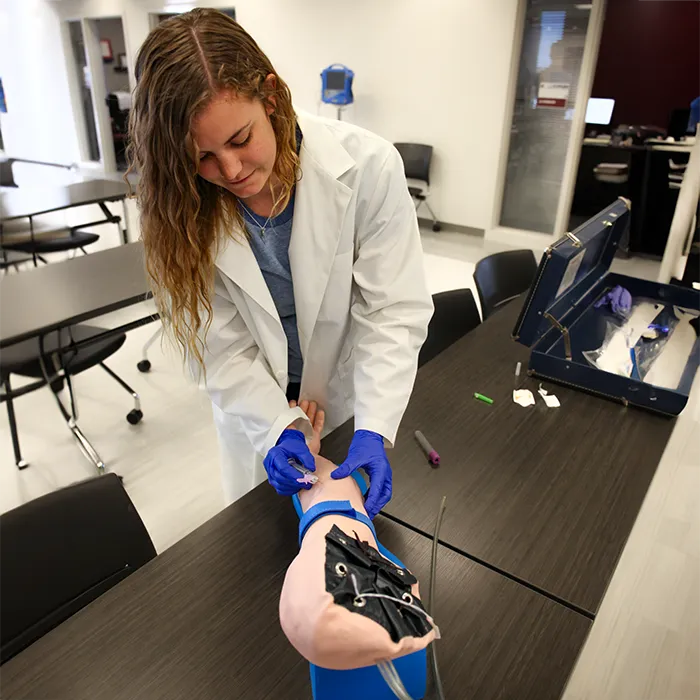Master of Science in Kinesiology, emphasis in:
Motor Neuroscience
The M.S. in Kinesiology with an emphasis in Motor Neuroscience prepares students for advanced study in movement sciences or research careers in the private or public sector. This emphasis area is experimentally oriented and is specifically designed to provide students with a thorough foundation in the theoretical processes that assist the performance and learning of perceptual motor skills.
This emphasis area provides ample opportunity for students to gain research experience. Laboratories support research in motor control, motor learning, and motor development. These laboratories provide the most modern facilities and use technologies that allow online data collection and processing, sophisticated presentation of auditory and visual stimuli, state-of-art brain stimulation and imaging, as well as the opportunity to use human research models.
The work conducted in the laboratories is multi-disciplinary, providing supplemental experiences and collaborations available in biomechanics, electrical engineering (robotics), computer science (artificial intelligence), industrial engineering (human factors), neuroscience, and Psychology.
Former students of this emphasis area work in a variety of settings. Many went on to pursue a PhD degree in a motor neuroscience-related field. Some have selected to seek industry employment, and others have successful careers in clinical movement labs within hospitals and academic research laboratories.

Curriculum
There is considerable flexibility in designing the degree plan to fit the student’s particular needs and expectations. Plans of study are individually developed by the student and their advisory committee. The goal is to cater to individual student’s goals while developing her/his research skills in one of the related disciplines of motor learning, motor control, motor development, and/or biomechanics.
Curriculum
Admissions
- Application Deadlines
Tuition & Fees
Program Advisors
Faculty
Frequently Asked Questions
I have further questions. Who can I contact?
The Graduate Advising Office is located on the first floor of the Gilchrist Building. Our office hours are Monday-Friday 8:00a.m. to 5:00 p.m.
Office: Gibb Gilchrist Building
You can email us general questions at knsm-grad@tamu.edu.
